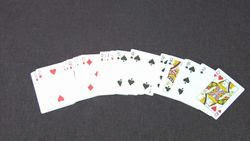TWINKLE TWINKLE LITTLE STAR !
Once upon a time our planet was far less polluted. The colour of the sky in my town was real sky blue.As I walked down a deserted dark street on a moonless night, I could see the glistening ribbon of the road ahead in the faint glow of starlight! And as I walked I had a great number of glow worms (I called them JUGNOO) keeping me company, moving along as the modern jet aeroplanes do now - intermittently emitting light ! That was an experience so totally denied by pollution nowadays.
Nobody then knew what smog was except, may be, in a few big industrial cities in the west. In those days, on a cloudless moonless night, the clear black sky was densely studded with countless twinkling stars against a pitch dark background. It was just like in the popular nursery rhyme.
In the summer months we used to sleep in the open at night. It was much cooler outside. Only the people who have slept under the stars can know what a blissful summer time experience it is! Through the night the breeze brings different pleasant smell as it keeps changing direction. And there is that almost imperceptible feeling that dew is cooling your bed sheets. You can sense the changes in the face of nature through the night. And you wake up to the call of the first cock as he crows to announce the arrival of the wee hours of a new dawn!
The towns, then, were not crowded as today and most houses had a good deal of open spaces around them. Most houses had a CHABUTARA in the open in the courtyard. It was a raised circular or rectangular platform of brick and cement, some two feet above the ground. It was usually large enough to accommodate a few cots for sleeping under the stars!
We had a fine Chabutara in our house too and we always sprinkled a few buckets of water on the chabutara which further cooled it. A table fan made it even more enjoyable to lie there.
When I go back on a journey into the past I find myself lying flat on my back in a cot in the 'Chabutara' in the summer months and gazing at the sky, at the countless twinkling stars. Above me in the sky a white band of starsdust stretched from the north to the south (see photo). We called this Akash Ganga (Milky Way). It is a nebulous white haze and is said to contain upto four billion stars including our own Sun within its fold. I wonder how many of today's kids have time or inclination to gaze at the milky way or the constellations !
As I lay there I found most of the stars moving stealthily westward all through the night. But the polaris or North Star in the north (we called it DHRUVA) remained rock steady at one place throughout the night and the Great Bears (sapta rishi for us) revolved slowly around it.There is a mythological story connected with Dhruva star (north star). Let me recount it to you.
It is said that the child prince Dhruva, son of king Uttaanpaad was a great worshiper of lord Vishnu. As the story goes, the six year old Dhruva began intense meditation on lord VISHNU and the lord one day suddenly appeared before him in all splendour (see the famous painting by Raja Ravi Verma) and asked him to have his wish fulfilled. Dhruva would ask for nothing worldly. The lord then decreed that Dhruva would live a long and happy life. He further decreed that after his death Dhruva would become a celestial body which would not be touched even by the final cataclysm . And that celestial body, according to the hindu mythology, is the star Dhruva in the north (the north star).
To continue with the star gazing, in the sky in the south west there was that bright constellation called Orien Hunters and my father, who had a great interest in astronomy, would explain to me that the three bright equidistant shining stars in the middle of the constellation, were the Orien Hunter's belt. And cutting aross this belt at an angle, I could see a set of faint stars in a straight line making the hunter's dagger! And right above me, far far into the heavens, was a hazy small constellation known as The Kite.
Some of the twelve sun signs of the zodiac were there too and moved steadily through the night, amongst them the shining Saggitarius peeping through the haze of the milky way.
As time rolled on, the population and pollution in the towns steadily increased. Houses with big open compounds (with 'Chabutara') gave way to compact housing colonies, with houses close to each other. And the custom of sleeping in the open under the stars became obsolete for want of sufficient open spaces to cool the air. The Chabutara also consequently disappeared. Otherwise too, with a constant blanket of haze over the towns, twinkling stars have become a thing of fairy tales only and there is nothing out there in the sky to see on a dark moonless night except a few very bright stars.
The time when TWINKLE TWINKLE LITTLE STAR will lose its meaning altogether is fast closing on us!!
********





